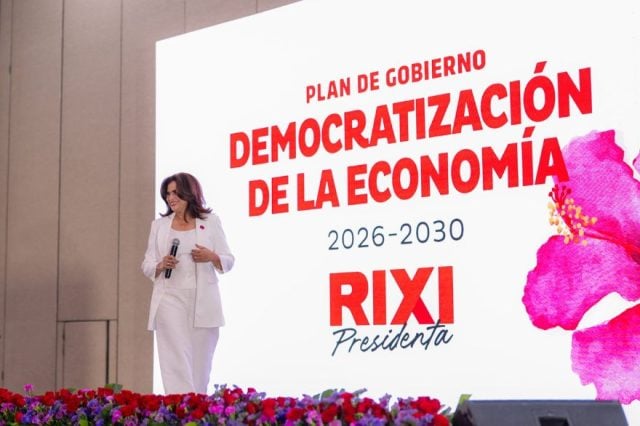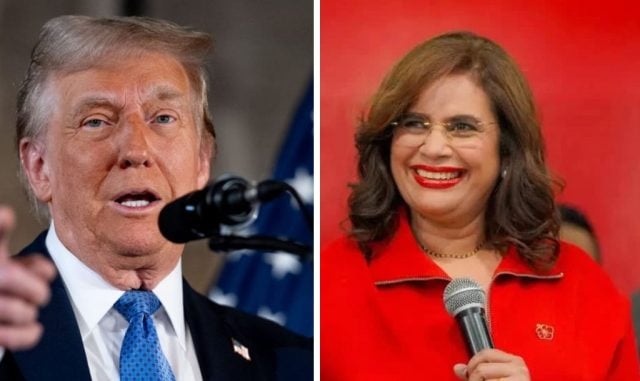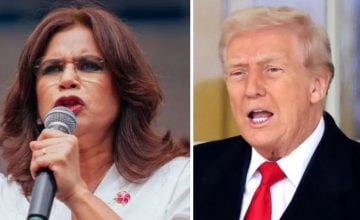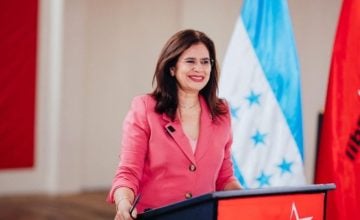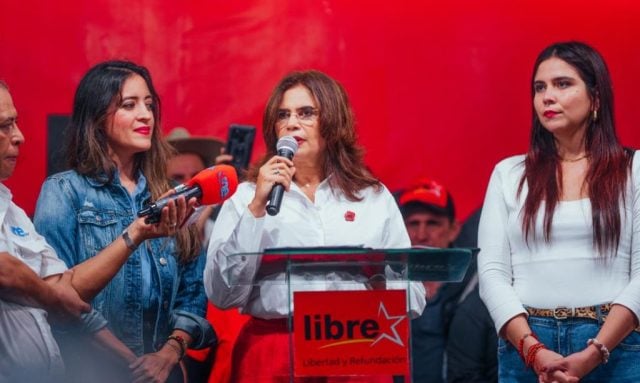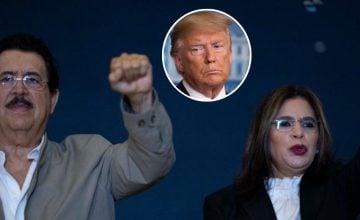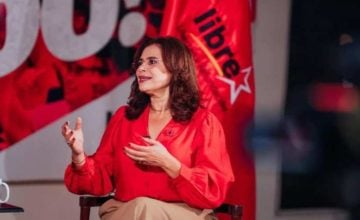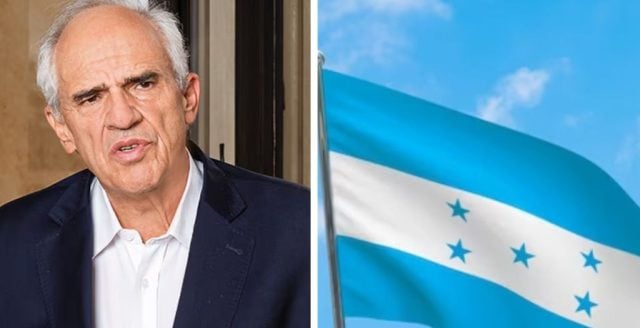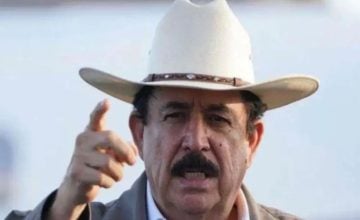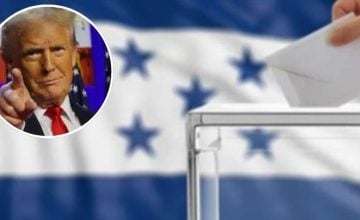Original article: Rixi Moncada presenta plan para refundar el Estado y democratizar la economía en Honduras: fin de los privilegios de 10 familias y créditos al 5%
At an event held in San Pedro Sula, Rixi Moncada, presidential candidate for the Liberty and Refoundation Party (Libre) in Honduras, formally presented her government plan «Economic Democratization 2026-2030,» a proposal aimed at structurally transforming the state and ending the historical privileges of powerful economic groups while strengthening social justice.
The initiative seeks to halt the neoliberal model dominated by ten families for over 40 years, which has adversely affected the Honduran people and hindered the country’s development. It includes fair lending practices with interest rates below 5% for small producers, women, and youth.
In her presentation, Moncada emphasized that the plan’s vision is to democratize the economy, ensure tax justice, and transform structures that have impeded national development, focusing on equity, rights, and real opportunities for those who produce and work.
“The victory belongs to the people in resistance,” she stated, expressing gratitude for the public support of her proposal, according to TeleSUR.
She noted that her approach does not involve external innovations but rather the application of constitutional mandates in economic and political matters.
«The Constitution of Honduras prohibits monopolies, monopsony, oligopolies, hoarding, and similar practices. However, throughout our life of ‘liberal democracy under tutelage,’ particularly after the coup d’état in 2009 that installed a mafia of drug traffickers, the Honduran economy has been surrendered to an ambitious oligarchy that has appropriated 80% of the GDP through 25 economic groups and 10 families,» the lawyer indicated.
«The government plan I propose for the Refoundation of Honduras is called ‘Democratization of the Economy’ and is grounded in the revolutionary principles of democratic socialism, centered on economic, climate, and social justice for the majority. The refoundation of the state means ending the oligarchic power that has historically hijacked national sovereignty and the economy,» she asserted.
The presidential candidate asserted that sovereignty does not belong to elites or interest groups, but to the people: to workers, farmers, indigenous populations, Garífuna communities, laborers, teachers, youth, and entrepreneurs.
“Refounding means returning power to those who produce, to those who have been excluded, exploited, and marginalized for centuries. Refounding means returning power to the people to construct a fair, democratic, productive, and truly free Honduras,” she said in her presentation of the plan published on the website: https://democratizacioneconomia.com/.
“My proposal breaks the foundations of the failed and cruel economic model that has impoverished the Honduran people and the corrupt privatizing system that our financial structures impose,” emphasized the presidential candidate from the Liberty and Refoundation Party (Libre).
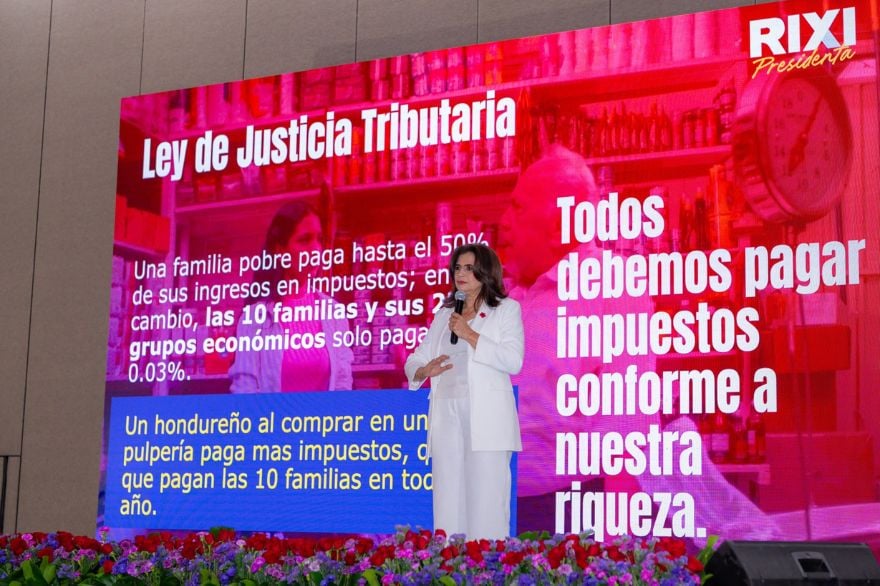
Pillars of Rixi Moncada’s Economic Democratization
The plan presented by Rixi Moncada revolves around several key reforms aimed at redistributing economic power and breaking away from what her campaign labels as «the neoliberal model.»
Fair Loans and Breaking Financial Barriers: One of the most notable measures is the elimination of the Financial Risk Central (Credit Information Center), which the presidential candidate describes as «a blacklist for denying credit.»
“We are not absolving responsibility or giving away anyone’s money; we are changing the rules so that evaluations are fair and current based on current payment capacity. We will establish an inclusive scoring system with rapid rehabilitation for those catching up and data protection to ensure no one is humiliated by their situation,” she explained.
Instead, she proposes implementing an inclusive scoring system. Through the National Agricultural Development Bank (BANADESA), accessible loans will be offered with interest rates below 5% for small producers, women, and youth, aiming to combat usury that affects a significant portion of the population.
She also highlights the necessity to redesign and capitalize public banking to meet development objectives: to put wealth and opportunities in the hands of those who will multiply it through their labor. BANADESA will serve as the specialized bank for the agro-food sector, while BANHPROVI (Honduran Bank for Production and Housing) will promote industry, services, and housing.
Tax Justice: The candidate pointed out the deep inequity in the current tax system: “While a poor family pays up to half of what they earn, the wealthiest pay less than 1%.” Her plan proposes a Tax Justice Law based on the principle that “those with more should pay more,” aiming to audit and regulate the exemption regime while allocating collected funds to social programs.
Thus, she proposes passing a Tax Justice Law, which would eliminate evasion and privileges, audit and regulate the exemption regime, and prohibit waivers that legalize unpaid debts.
“Every lempira we recover through the Tax Justice Law will go to social programs and comprehensive social policy; it will be used to combat poverty,” Moncada affirmed.
“There is no possibility of developing and transforming the country without achieving economic justice and eliminating that financial iron that limits families’ access to low-interest resources. The Tax Justice Law is part of this section and has been under discussion for nearly three and a half years,” she emphasized.
Combatting Monopolies and Strengthening the Public Sector: The program commits to enforcing constitutional articles prohibiting monopolies and oligopolies. Additionally, it proposes creating strategic public companies, such as Honduran Oil (HONDUPETROL), to explore, exploit, and market national petroleum resources, and a National Mining Industry Company. “No country is free if its wealth is in the hands of those not serving the national interest,” the candidate asserted.
Supporting Entrepreneurship and Local Production: Legislative initiatives such as the Fintech Law are included to facilitate online loans and break financial oligopolies, and the Startups Law aimed at financing and supporting entrepreneurship, especially for youth.
The plan also seeks to double national production and ensure that
